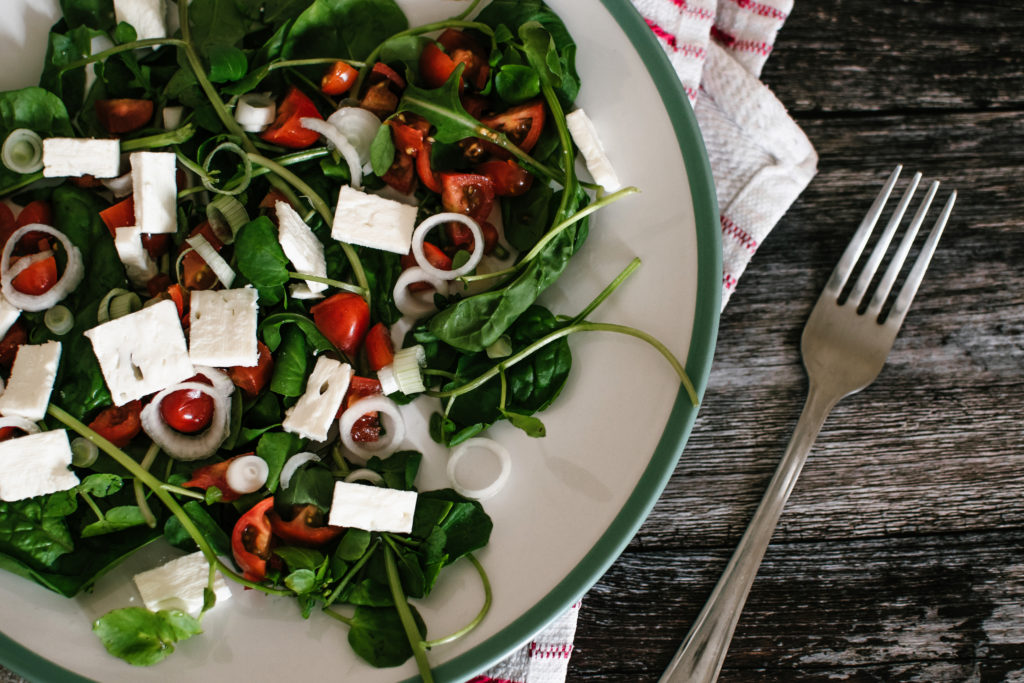Have you ever thought about how Inflammatory Bowel Disease (IBD) like Crohn’s disease or ulcerative colitis is affecting your fertility? Find out more about how diet can play a role.
Inflammatory bowel disease (also known as IBD) is a lot different to its similar sounding gut issue, Irritable Bowel Syndrome (IBS), which I have spoken about before here.
Unlike IBS which affects about 15% of the population, IBD (including Crohn’s disease and ulcerative collitis) affects only a small percentage of the population (approximately 1-2%). It is more common to start experiencing symptoms and to be diagnosed in your reproductive years. Along with the potential to negatively affect many areas of life such as your social life and career, IBD may also make it harder to conceive.
What is Inflammatory Bowel Disease (IBD)?
IBD is a collective term that refers to the conditions Ulcerative Colitis and Crohn’s Disease. Both are inflammatory conditions that occur mainly within the bowel, more specifically the large intestine, however, Crohn’s disease can impact anywhere along the digestive tract from the mouth to the rectum (oh yes, I said rectum!)
Symptoms of IBD can include:
- Unintentional weight loss
- Very frequent bowel motions often very loose
- Blood in stools
- Nutritional deficiencies such as iron, B12 and vitamin D deficiency
- Poor appetite
- Fever
- Poor energy levels and fatigue
If you have any of these symptoms, please see your doctor to discuss a formal diagnosis.
The Good News!
Let’s start off with some good news first: If your IBD is managed and under control and there’s no history of pelvic surgery (in women), fertility rates are found to be the same as the general population (van der Woude et al. 2015). Experts recommend couples who haven’t yet completed their families, work with their doctor around the optimal timing of any surgery to avoid increasing the risk of infertility.
So, how does IBD affect fertility for men and women?
During flare ups, there are several different ways IBD and its management can impact on fertility and the ability to conceive.
1. Disease activity
We can all agree that IBD can be a debilitating condition and it’s therefore no surprise that it can impact on libido levels, mood and self confidence as well as increase the fear of pregnancy related complications.
Despite the possibility of IBD flare ups causing inflammation in the nearby reproductive organs, the disease itself has little impact on the ability to conceive (Van der Woude et al. 2015). It is important to discuss any concerns with your doctor or fertility dietitian who can help steer you in the right direction and address any fears you may have.
2. Medications
Although not common, some medications that are prescribed for IBD management have side effects that may impact on the ability to conceive.
Sulfasalazine, as an example, is shown in the research to decrease sperm cell count and cause abnormalities in sperm shape and movement (Sands et al. 2015).
Some medications used for IBD management are also known to impact folate metabolism, so speak with your doctor and fertility dietitian about how to meet your folate demands if you use medications to keep flare ups of your Crohn’s disease or ulcerative colitis at bay.
The good news is that the majority of medications have very little impact on fertility, however, it is important to discuss medication use with your doctor and how to best manage symptoms while still leaving the door open to achieve your fertility goals!

3. Surgery
Nearly a quarter of patients with IBD will require surgery for disease management. Unfortunately, once surgery has been completed, infertility rates have seen to increase to around 48% in this population (Waljee et al. 2006).
So what’s the reason behind this increase?
Surgery causes changes in the shape and structure of the female reproductive organs and can cause changes in the function of the male reproductive organs. This in turn, makes conceiving naturally more challenging (Van der Woude et al. 2015).
As stated above, it is imperative to discuss with your doctor and fertility dietitian around the timing of surgery for both you and your partner if it’s required.
4. Nutrient Absorption and Losses
Lastly, we know that our diet impacts on our fertility and ability to conceive, but what nutrients should we pay special attention to when diagnosed with IBD
Depending on where your ulcerative colitis or Crohn’s disease is in your intestine can affect different nutrient needs, which is why working with a dietitian one-on-one whilst managing IBD is so important alongside monitoring your blood tests with your doctor.
Iron
Iron is a critical mineral responsible for helping to oxygenate our tissues via red blood cells. Iron deficiency is one of the world’s most common nutritional deficiencies and affects more women than men. IBD is associated with an increased risk of iron deficiency, if the disease is in a spot in your intestine where iron is absorbed.
Not getting enough iron not only leaves you feeling more fatigued, but can really mean you’re behind the eight-ball when it comes to pregnancy where iron demands really ramp up!
Correcting iron deficiency before conceiving is ideal by working on your diet and an appropriate supplementation regime based on your blood results and dietitian’s guidance.
Vitamin D
Vitamin D is a fat soluble vitamin that works to build hormones important for reproductive health. Our skin makes vitamin D through exposure to direct sunlight and it can also be found in foods such as salmon, sardines and eggs. Research has shown that individuals with IBD are at a higher risk of developing Vitamin D deficiency (Ananthakrishnan et al. 2013), meaning it’s important to work with a fertility dietitian to optimise your intake!
Want to know why vitamin D is so important for fertility, read more here.
Folate
Folate is a naturally occurring B-vitamin found in green leafy veggies, lentils and avocado and is an essentialnutrient for DNA development and cell growth – which is going on in the early parts of pregnancy, often before you even find out you are pregnant!
Let’s just say, if there’s one nutrient you should place a strong focus on throughout your journey to conceive, it’s hard to look past folate!
Research has shown individuals with IBD have an impaired ability to absorb folate compared to the general population, layer that on top of
Therefore, it is essential to work with your fertility dietitian to ensure your folate intake is up to scratch!
Read more about the importance of Vitamin D and Folate during conception here.

Another thing to be mindful of is if you’re not managing symptoms of IBD well such as chronic persistent diarrhoea, you may be at risk of losing some of the all important water-soluble vitamins like all your B vitamins (yes, including folate!) and also vitamin C, which functions as an important antioxidant.
These vitamins are not only important for female fertility, but male fertility too! With poor vitamin C in sperm being linked to reduced sperm quality in some research.
What can you do to improve your chances of conceiving with IBD?
A diagnosis of IBD can be overwhelming and stressful and during IBD flare ups, eating a full quota of essential nutrients can sometimes take a back seat. Therefore, working with a fertility dietitian to create a plan around your fertility goals, while still incorporating dietary advice around any of your IBD requirements can be truly invaluable for your health and future pregnancy too.

If you’ve recently been diagnosed with IBD or suspect your IBD is impacting on your ability to conceive, take control and apply to with us at The Dietologist today and let’s develop a tailored plan for your symptoms and goals!
This blog was co-written by Dietitian Liana Tunzi. You can find Liana on Instagram @woodenknife_nutrition or connect with her on LinkedIn.







